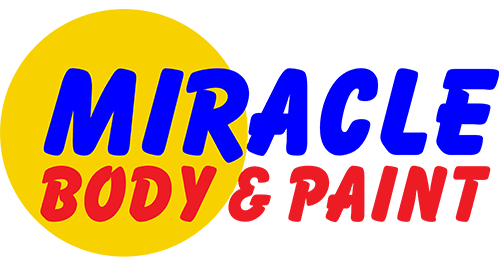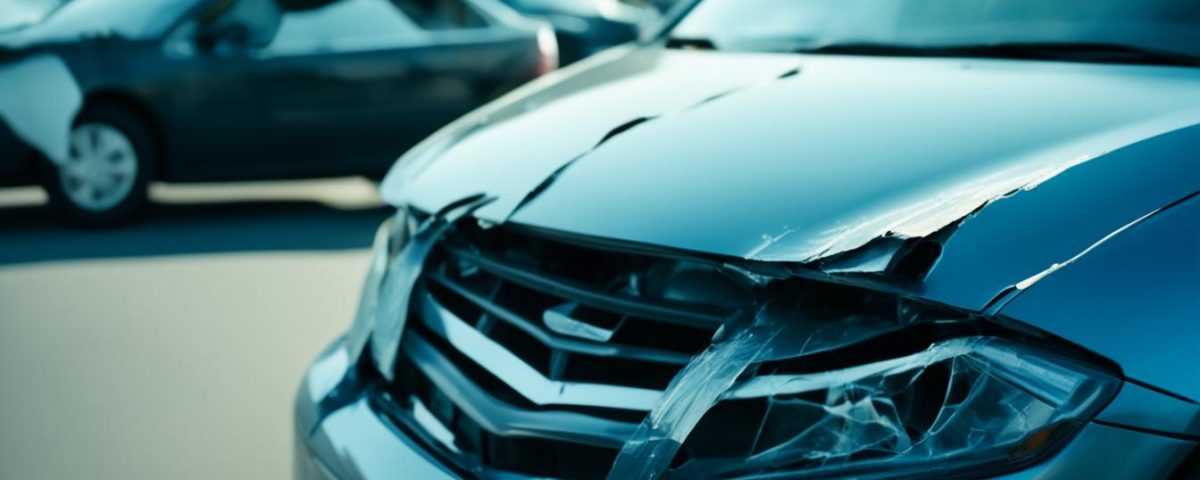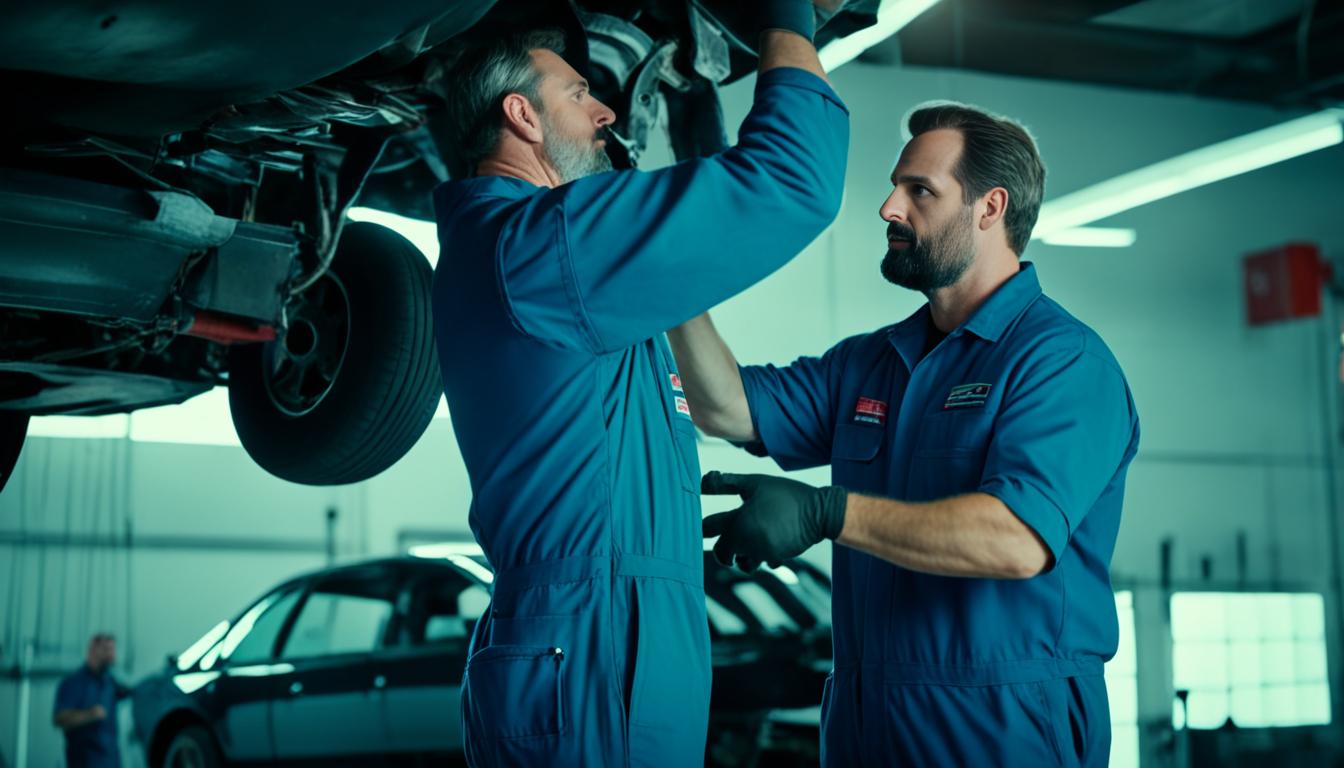
Understanding the Collision Repair Process: A Step-by-Step Guide
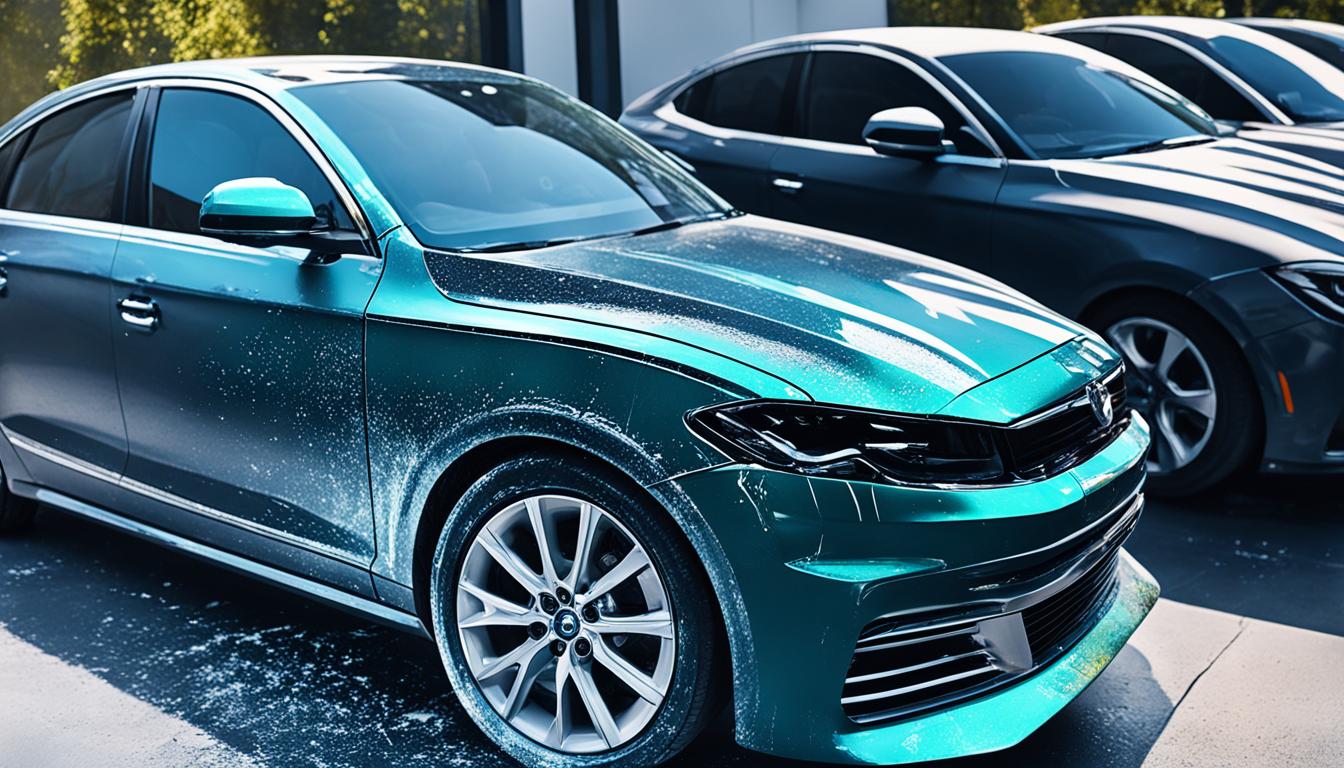
How to Restore Your Car’s Paint After a Collision
In the ever-evolving world of automotive repair, understanding the common types of vehicle damage and the methods used to address them is crucial for anyone who owns or operates a car. From weather-related issues to major collisions, the range of potential problems that can affect our vehicles is vast. At Miracle Body and Paint, we’ve seen it all and are dedicated to providing our customers with the highest quality of service and restoration.
This article will delve into the most prevalent forms of car damage, including weather damage, major accidents, cracked windshields, exterior damage, structural issues, and mechanical problems. By gaining a deeper insight into these various types of damage, you’ll be better equipped to work with auto repair specialists like ourselves to ensure your vehicle is properly restored to its pre-accident condition.
Key Takeaways
- Understand the common types of car damage, including weather-related, collision, and structural issues.
- Learn how to assess the extent of damage after an accident, from minor to severe.
- Discover hidden damages that may not be immediately visible and require professional inspection.
- Recognize the importance of working with reputable auto repair shops like Miracle Body and Paint to ensure proper restoration.
- Gain knowledge to make informed decisions when dealing with car damage and the repair process.
Understanding Car Damage
Vehicles can face a variety of challenges that can lead to different types of damage. From the effects of weather to major collisions, understanding the various forms of car damage is crucial for maintaining the safety and functionality of your vehicle.
Weather Damage
Prolonged exposure to the elements can take a toll on a car’s exterior and interior. Weather damage such as sun damage can cause fading of the paint and deterioration of the interior materials. Hail strikes can dent the bodywork, while snow, ice, and road salt can accelerate the rusting process, particularly on the undercarriage.
Major Collisions and Accidents
Severe major collisions and accidents can result in significant structural damage to a vehicle, affecting the frame, engine, transmission, and suspension system. This type of damage can compromise the car’s safety and functionality, and in extreme cases, the vehicle may be deemed a total loss by the insurance company.
Cracked Windshields
Cracked windshields can occur due to debris hitting the glass at high speeds or drastic temperature changes. While small cracks may seem minor, they can quickly spread and impair visibility, posing a safety risk. Depending on the size and severity of the crack, the windshield may need windshield repair or complete replacement.
Types of Vehicle Damage
When it comes to vehicle damage, there are several distinct categories that car owners should be aware of. From exterior damage to structural damage and mechanical damage, understanding the various types of problems that can arise is crucial for ensuring the safety and longevity of your car.
Exterior Damage
One of the most common types of car damage is exterior damage, which can include dents, scratches, and paint damage. While these issues may seem purely cosmetic, they can affect the overall appearance and value of the vehicle. Severe accidents can result in more extensive exterior damage, such as crumpled panels, broken lights, and shattered windows.
Structural Damage
Beyond the surface, car accidents can also cause structural damage to the vehicle’s frame and alignment. This type of damage is not always visible to the naked eye, but it can compromise the car’s safety, handling, and stability. Even minor accidents can result in bent frames or misaligned components, which can have long-term implications for the vehicle’s performance.
Mechanical Damage
Car accidents can also cause damage to the vehicle’s mechanical systems, including the engine, transmission, suspension, and brakes. This can result in issues such as fluid leaks, engine misfiring, braking problems, and steering difficulties. Ignoring mechanical damage can lead to further complications and impact the car’s safety and reliability.
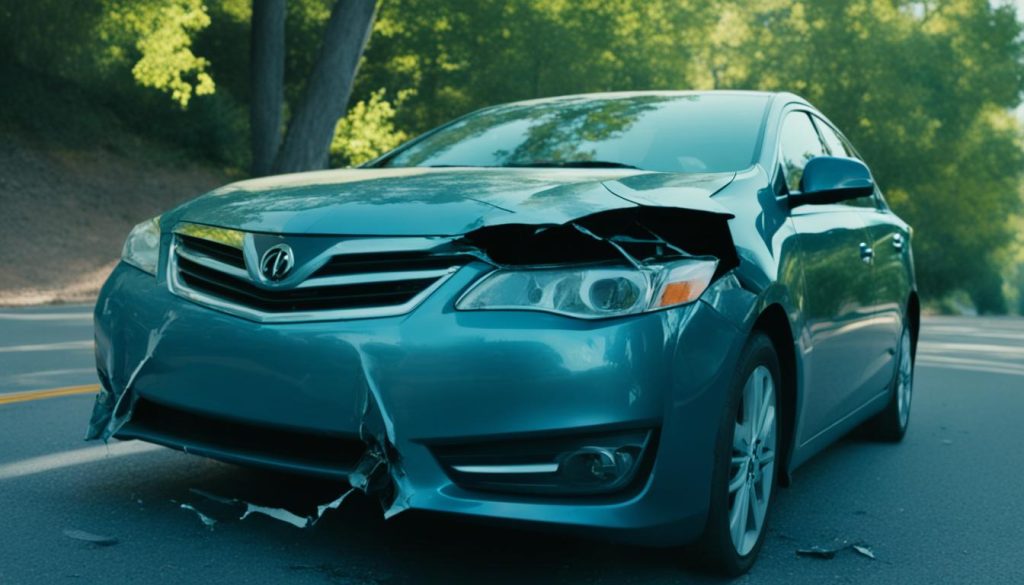
Assessing Vehicle Damage After an Accident
When it comes to assessing vehicle damage after an accident, it’s crucial to understand the different levels of severity. From minor damage to severe damage, each type requires a unique approach to repair and restoration.
Minor Damage
Minor damage typically includes small dents, scratches, and other cosmetic issues that don’t affect the vehicle’s functionality. While these minor damages may not impact the car’s performance, they should still be addressed to maintain the vehicle’s appearance and value.
Moderate Damage
Moderate damage can involve larger dents, deeper scratches, and cracks that require more significant body work or replacement of parts. This can include broken mirrors or lights, as well as damage to the vehicle’s bumpers.
Severe Damage
Severe damage usually means that key components of the car, such as the engine, transmission, or suspension, have been affected. These types of damages often render the vehicle unsafe or unable to be driven until the necessary repairs are made.
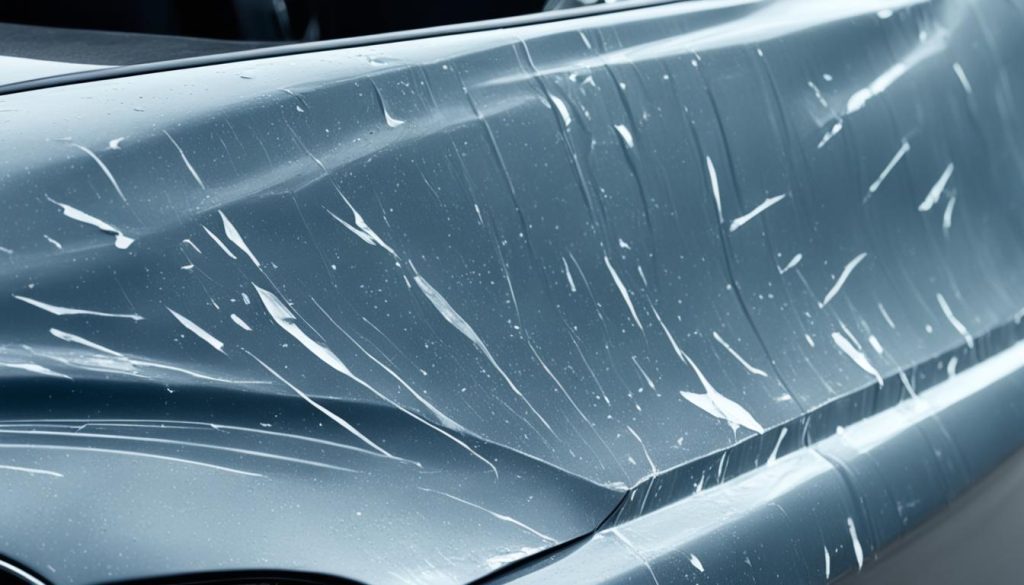
Understanding the extent of damage is crucial in determining the appropriate course of action and ensuring the vehicle is restored to its pre-accident condition, whether it’s minor cosmetic issues or severe structural damage.
Hidden Damages Found After a Car Accident
After a car accident, some of the damage may not be immediately visible. This hidden damage can be a serious concern, as it can compromise the safety and functionality of your vehicle. As experienced automotive professionals, we understand the importance of identifying and addressing these hidden issues to ensure your car is properly repaired.
One common type of hidden damage is frame damage. The frame of your car is the structural backbone that supports the entire vehicle. If the frame is bent or twisted, it can affect the alignment, handling, and even the safety of your car. This type of damage may not be easily detected, but it’s crucial to have it inspected and repaired by a qualified technician.
Another hidden issue that can arise after an accident is electrical damage. The electrical system in your car is complex and sensitive, and even a minor collision can disrupt the wiring or damage sensitive components. This can lead to a wide range of problems, from malfunctioning lights to more serious issues like battery failure or engine problems.
Additionally, accidents can sometimes trigger the onset of rust, which can be a hidden problem that develops over time. Rust can weaken the structural integrity of your vehicle and lead to more extensive repairs down the line. It’s important to have your car inspected for any signs of rust, especially in areas that may have been impacted during the accident.
To ensure your car is fully repaired and safe to drive, it’s essential to have a professional inspection after any accident, even if the visible damage appears to be minor. By identifying and addressing any hidden damages, you can rest assured that your vehicle is in top condition and ready to hit the road again.
- Frame damage can affect alignment, handling, and safety
- Electrical damage can lead to a range of problems, from malfunctioning lights to battery failure
- Rust can weaken the structural integrity of your vehicle over time
Conclusion
Understanding the various types of car damage and the potential costs associated with them is essential for maintaining the safety, performance, and value of your vehicle. By working with a reputable collision repair shop like Miracle Body and Paint, we can ensure your vehicle is properly inspected, assessed, and repaired to pre-accident condition.
Whether you’re dealing with weather damage, major collisions, or cracked windshields, the team at Miracle Body and Paint has the expertise to get your car back on the road safely. From exterior and structural repairs to addressing hidden mechanical issues, we’re committed to providing high-quality car repair and collision repair services that exceed your expectations.
Contact Miracle Body and Paint today to schedule an appointment and get your car back in top shape. With our commitment to customer satisfaction and attention to detail, we’ll have your vehicle looking and performing its best in no time.

